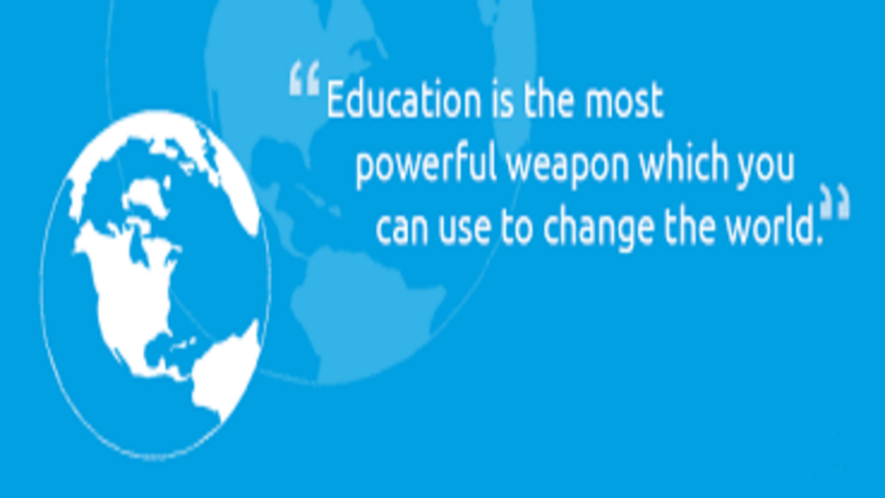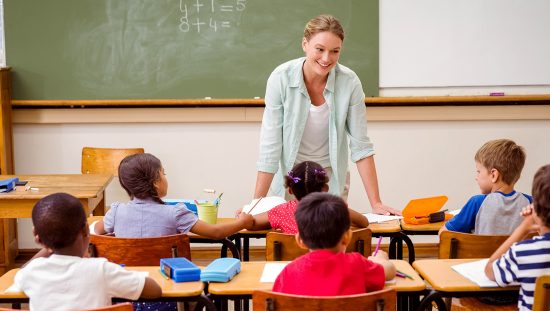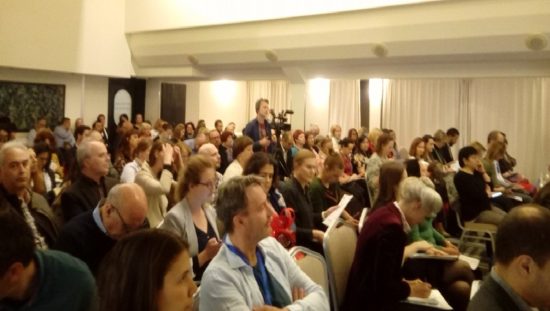The Education Sector Reforms (ESR 2000-2003) is the Action Plan derived from a systematic consultative process which began in December 1999. The consultation has engaged over 500 people comprising, experts, civil society groups, private sector, NGOs, provincial governments, along with their Ministers and Governors. The three year Action Plan is embedded in a long term framework providing a direction which can withstand political changes, designed by a cross-section of stakeholders.
The Education Sector Reforms (ESR 2000-2003) included six programs to improve education performance in the areas of access and quality at all levels of the education system. The details of these programs are as under;
1. The Comprehensive Literacy and Poverty Reduction Program
The Comprehensive Literacy and Poverty Reduction Program was prepared by the Pakistan Literacy Commission. The Comprehensive Literacy and Poverty Reduction Program is based on an integrated non-formal basic education and functional literacy strategy. It caters to different age groups amongst vulnerable communities throughout the country where there is no formal education provision. The Non-Formal component of the Education Sector Reforms is a response to gender and development approaches for disadvantaged girls and boys, women and men. The program targets including nomads, refugees, working children, riverine communities, women and children in prisons and in Darul Amans.
This program has been designed for the poorest of the poor in Pakistan, extending education entitlements through flexible, quality oriented and area based approaches. The proposed program has three projects viz.,
- The Community Primary Schools Project (5-9 years age group)
- The Accelerated Community Primary Schools Project (10-14 years age group)
- The Women’s Literacy for Empowerment Project (women 15 + years age group)
2. Expansion of Primary /Elementary Education
Primary Education is important for eradication of illiteracy, promotion of equality amongst members of society; combating poverty and diseases. It serves as an instrument for development of national identity, and unity; pre-requisite for effective participation in politics, government and other nation building activities; understanding religious teachings; and for life long and continuing education. Furthermore, primary education has the highest rate of private and social return.
Status of primary education in Pakistan is not very encouraging both with respect to quality and quality of education. Universalization of Primary Education (UPE) is the most challenging milestone for the Government of Pakistan. The task is gigantic and concerted efforts are needed to raise the status of Primary Education in Pakistan with respect to both quantity and quality. To actualize this task, the proposed program has three projects viz.,
- Ordinance on Compulsory Primary Education
- Up-gradation of Physical Facilities – Consolidating Infrastructure for Quality EFA
- New Primary Schools
3. Introduction of Technical Stream at Secondary Level
Sustained socio-economic development is not possible by mere capital investment unless it is reinforced with proper supply of adequately trained scientific and technical workforce. A well-planned education system including technical and vocational education is, therefore, essential for economic development of a country.
To realize this vision, integration of skill development with general stream of education has been advocated in almost every policy document since 1947. To implement this concept, schools with various nomenclatures like Technical High Schools, Pilot High Schools and Comprehensive High Schools were established which offered vocational courses. All these efforts, however, could not make the desired impact due to inbuilt conceptual defects, lapses in implementation and in-sufficient sustained inputs. However, the concept of integration of vocational education and skill development programs into general stream of education has not been discarded.
In order to integrate skill development in general education, a scheme for introduction of Technical stream at secondary school level (classes IX-X) parallel to science and arts group has thus been proposed. To implement this concept it has been planned as under:-
- Introduction of Technical stream in existing high schools
- Establishment of Model Technical high schools
4. Improving the Quality of Education through Teacher Education and Training
Teacher plays a pivotal role in the development of whole education system. The competence and skills of the teacher, therefore, need continuous re-orientation for improving the quality and efficiency of education system. Besides, the quality of classroom teachers, the professional competency of teaching staff of Teacher Training Institutions and creation of a professional environment have a direct bearing on the quality of education.
For quality improvement in education, the elementary and secondary school teachers are to be equipped with latest techniques of teaching in accordance with the emerging trends in the field of education. The proposed reforms intend to provide improved pre-service education and continuous program of in-service training to school teachers. Efforts in this direction will be made by the Federal and Provincial Governments through following projects.
- Conversion of Teacher Training Institutes (TTIs) as fully Residential Institutions.
- Establishment of National Institute of Teacher Education and Training (NITET) and Strengthening of Provincial Institutes of Teacher Education (PITEs).
- Up-gradation of Elementary Teachers by Improving Educational Qualifications through Pre-service Education.
- Extensive In-service Teacher Training (Both Elementary & Secondary Levels).
5. Higher Education Sector Reforms
Pakistan needs a vibrant higher education sector for socio-economic development and technological advancement. To realize this vision the main focus and top development priorities of higher education sector reforms are;
- Improving Accessibility
- Improvement of Quality
- Shift to Science and Technological Education
The higher education sector reforms will be actualized by providing access to higher education opportunities in the public sector and increasing enrollment in higher education institutions, awarding increased funds, offering international standard graduate programs, arranging professional trainings for university teachers, upgrading laboratories and strengthening libraries through improvements in infrastructure and provision of materials.
6. Public – Private Partnership
Acknowledging the shift in government’s role from being a provider to a facilitator and an arranger it is vital to rethink the parameters of public private partnership in the provision of education.
The presence of private sector in education pre-dates public sector and has always supplemented public sector provision at all levels historically, except during the 1972-1979 period of nationalization.
In 1967 private institutions accounted for 31 per cent at middle level, 68 per cent at secondary level and 50% at college level. However, its presence in rural areas remained minimal. Today private initiatives have resurfaced as a robust force responsible for almost 17 per cent of education facilities with variations in quality and accessible to those with ability to pay. NGOs and communities have added vigorously to this effort in the post Jomtien period to reach Education For All targets since 1990. The current quantitative and qualitative shortfalls to a rising demand for education at the elementary, secondary, technical and higher levels needs to be met through a healthy public-private partnership.
The key areas of intervention are;
- Accelerate partnerships with NGOs/private sector through an organized package of incentives in all education sub-sectors.
- Restructuring of Foundations as effective autonomous institutions for private sector support.
- Private sector partnership in management of public sector institutions.
References
GoP. (2001). Education Sector Reforms, Action Plan 2000-2003. Islamabad: Ministry of Education, Government of Pakistan.
OTHER RELATED POSTS



